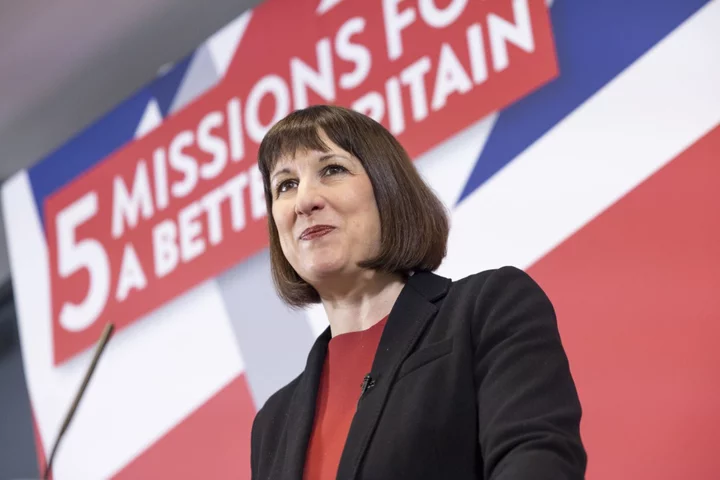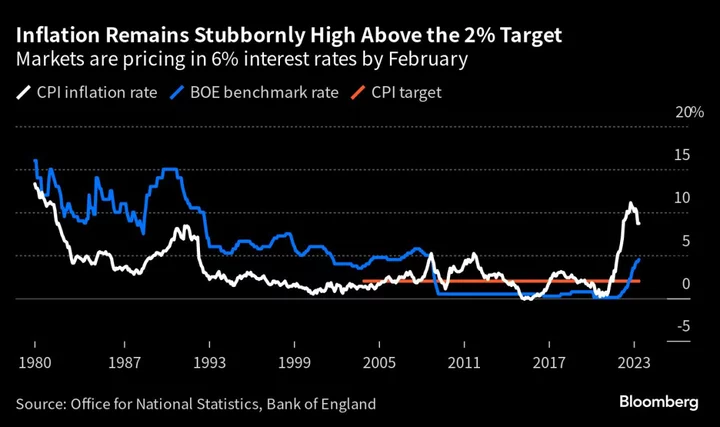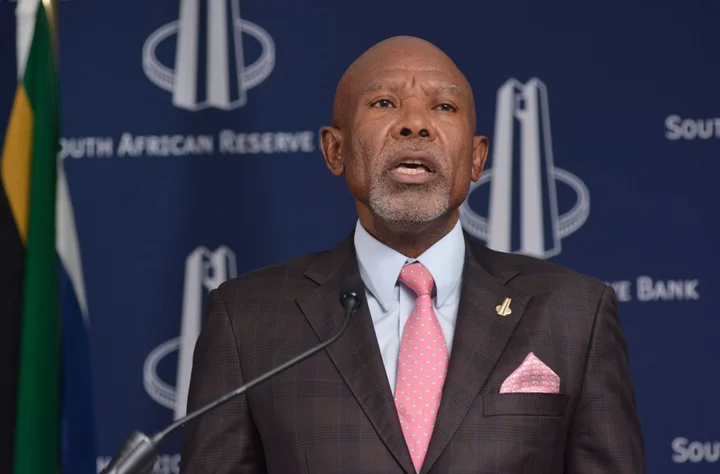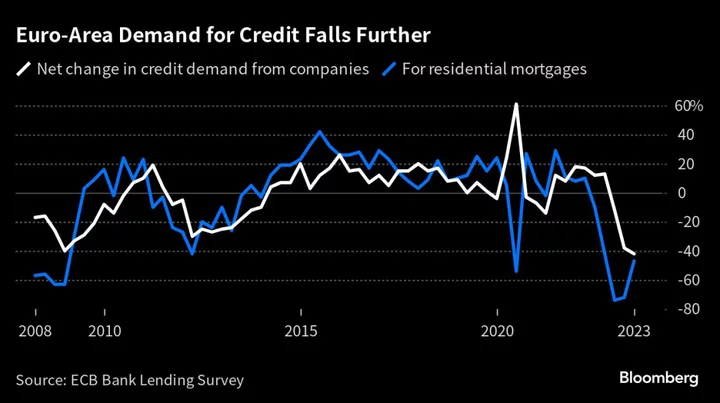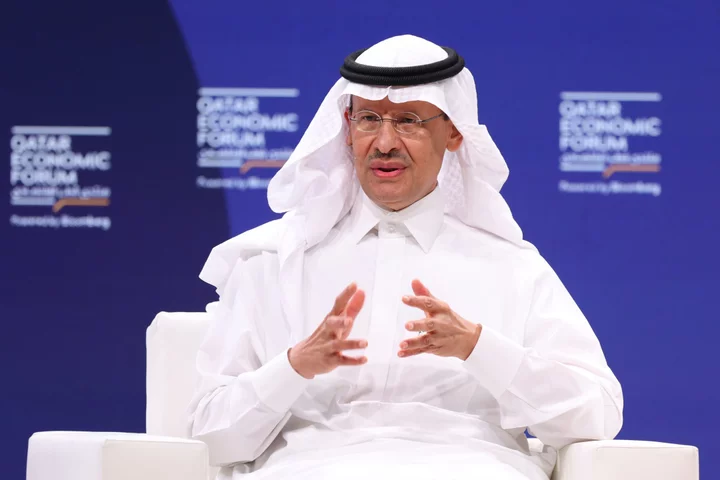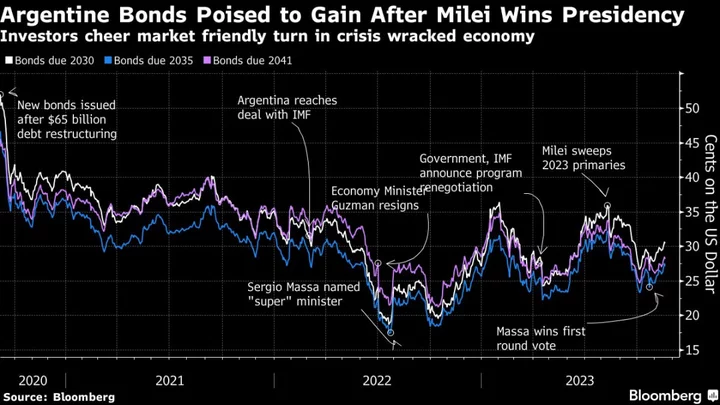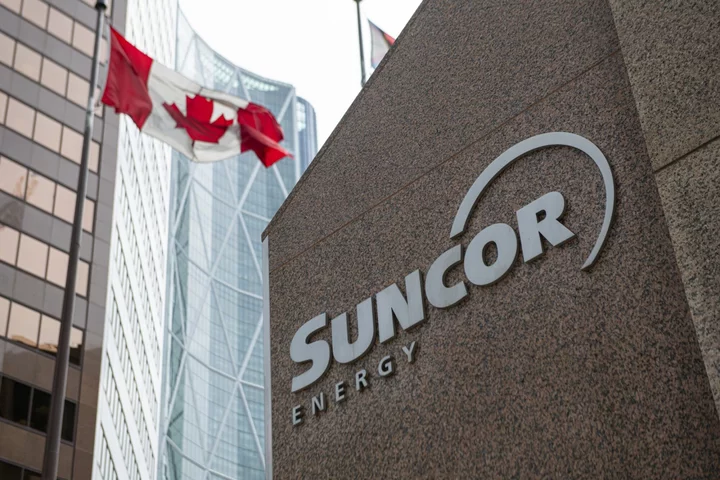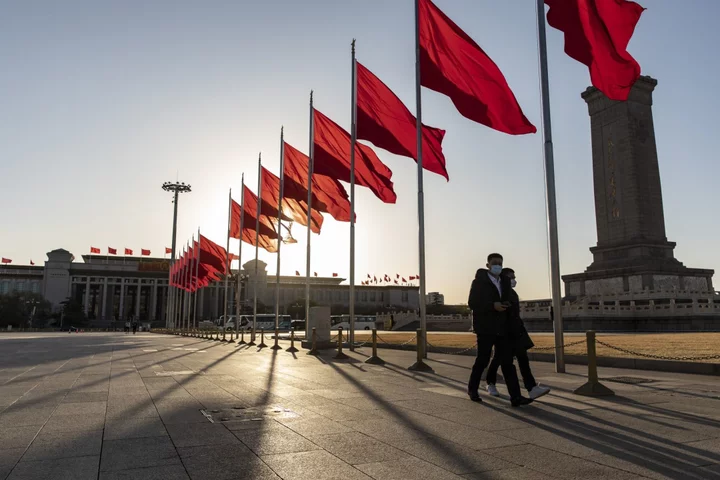The UK opposition Labour Party faces the prospect of regaining power against a backdrop of record high debt, but that won’t stop it from spending to invest in policy priorities, said shadow Chancellor Rachel Reeves.
“All of our policies are subject to our fiscal rules, which means paying for day-to-day spending through tax receipts and getting debt down as a share of our economy,” Reeves said in a BBC interview on Sunday.
“Borrowing to invest is different from borrowing to pay for day-to-day spending. Investing in assets that can grow our economy is essential if we want to break out of this ‘doom loop’ of low growth, high taxes and high inflation,” she said.
Labour has sought to position itself as the party of house building, with Reeves pledging to reintroduce building targets for local authorities scrapped by the Conservatives in 2023.
Read more: BOE’s Bailey Rejects Calls to Raise Inflation Goal Above 2%
It’s also examining a mortgage guarantee policy but won’t directly use taxpayers cash to build new houses or help those struggling with their mortgages, Reeves said.
The next UK election is likely to be in 2024. After its previous prolonged period of opposition Labour swept into power in 1997 at a time when the UK economy was healthy, and only after then shadow Chancellor Gordon Brown committed to match Conservative spending plans in a bid to shake off Labour’s image as the party of big spending and high taxes.
Reeves ruled out repeating that promise, yet rejected criticism that since both major parties have pledged to stick to similar tax and spending rules, there’s little to choose between them.
Read more: Privatized Britain’s Debt Load Is Now a Major Government Problem
“I have no desire to see the tax burden on working people increase; in fact I would like the tax burden on working people to be lower,” she said.
“But it all has to be built on that rock of economic and fiscal stability, because if you put that at peril then you see what has happened in our economy these last few months, with sky high interest rates and inflation that’s very difficult to get under control.”
Labour has pledged to scrap so-called “non-dom” tax rules to help fund a proposed workforce plan for the National Health Service, and it’s set out plans to invest £28 billion ($35.9 billion) in green projects. The weak economic outlook means that pledge could be delayed, but Reeves said she remains committed to spending on investment.
“In the US they are seizing these opportunities to grow the economy,” she said. “I don’t want other countries stealing a march on Britain; we’ve got the ideas and the talent here and we’ve got to harness it.”
Reeves, 44, who previously worked as an economist at the Bank of England, called for more diversity among economic policymakers, while pledging to uphold the central bank’s independence.
If Labour is elected she stands a strong chance of becoming the first woman to be named to the chancellor position, which dates back to the 13th Century.

